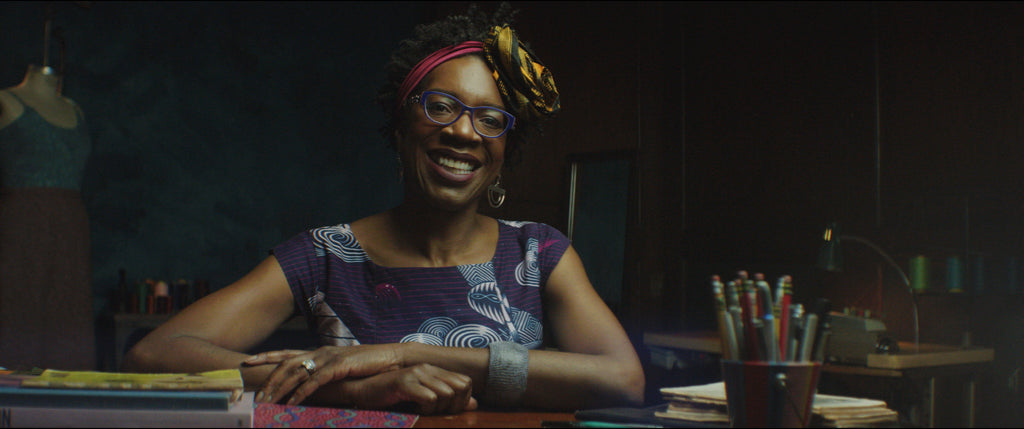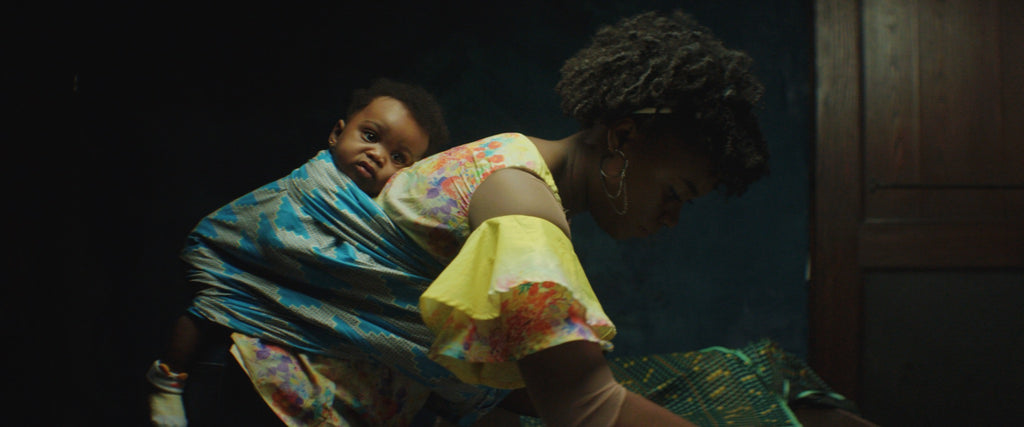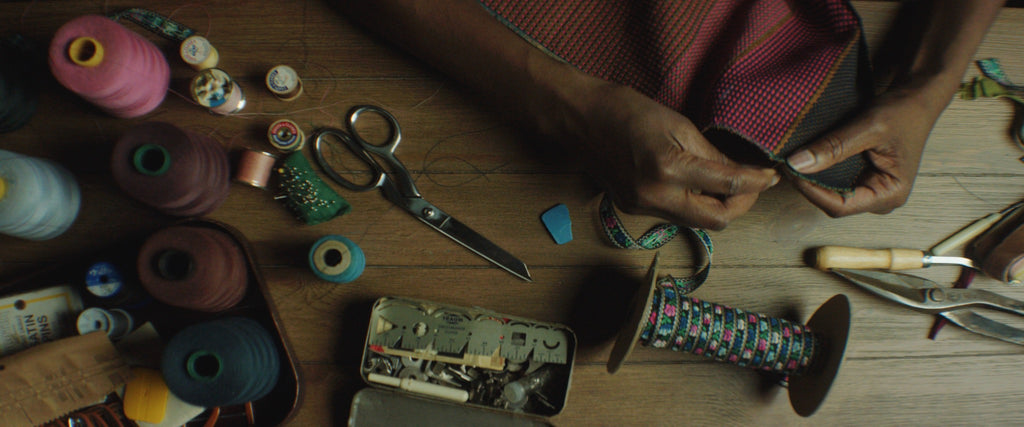Social Change Through Fashion: A Conversation with Ngozi Okaro of Custom Collaborative
Ngozi Okaro, executive director of Custom Collaborative, was born into a family of makers. Her mother and grandmother sewed and her father’s mother dyed and sold fabrics. Okaro has always loved fashion but, it is the socioeconomic side that was meaningful to her. Custom Collaborative, a non-profit organization based in New York, helps women from low income and immigrant communities learn to design, sew, and sell sustainable fashion. It checks off all boxes when it comes to making positive social, economic, and environmental change - all while being fashionable. Okaro developed the idea to create this organization after a Guinean woman who made her a few dresses and sparked some serious questions.
Ngozi: She was charging me not much at all for a dress but, whenever I wore those dresses people told me they would pay five or six times what I paid for it. If we could connect her with the market, teach her some more business skills, refine her construction skills, and actually bring her customers, she could have so much more impact economically on her family and her community.

When Custom Collaborative was just an idea without a name, conversations between Okaro and friends turned it into business plan. The first $2500 they received was actually from a colleague of a friend. As the latter half of the company name is ‘Collaborative’, the importance of community and working with is evident.
The first half of the company name ‘Custom’, has two meanings behind it. One, to make clothes for all body types since what’s sold in stores doesn't match the shapes that people have. The second Okaro explains, is “people from different cultures bring in different stylings. The peplum is really popular in West African clothes and we’ll talk about the kimono and appropriate the word but, it's a traditional Japanese garment. So, if people could have the skills to create fashion and bring in their own customs, that would be something really valuable.”
Small solutions like eating vegan a few times a week or opting for the paper bag instead of the plastic are common practices. However, most of the damage done to the planet and its workers is by the hands of large corporations like fast fashion companies. According to Custom Collaborative, Americans throw out 82 pounds of clothes each year. Okaro knows fast fashion provides quick economic success but, that isn’t the best route.

Ngozi: A business that has one of its pillars underpaying people, is not a real business. There are plenty out there that do it, some of the biggest corporations in the world but, to me it is not a real business model, it is not ethical, and it is not what I want to be part of. We cannot individually create a new economic paradigm but, we can work around the edges to carve out parts of it that are more equitable, sustainable, and fair.
Custom Collaborative equips all their students with the necessary skills needed to enter the fashion industry as well as entrepreneurial ones.
Ngozi: In some ways, they are entrepreneurial already. If you are low income, you are figuring things out. We share with them marketing strategies, pricing strategies, and help them develop a business plan which is one of the requirements for graduation for the training program.
Women are subjected to all kinds of discrimination in the workplace, to add xenophobia as an immigrant, further resources are limited. Ngozi adds “I thought about who has the least opportunity. If you are thinking about a totem pole so to speak, closer to the bottom is women, closer to the bottom is people of color, and closer to the bottom is people for whom English is not their first language.”
Ngozi: We’ve had six classes graduate so far, the seventh in December. The women within the classes have developed community among themselves, then among the different cohorts. People bring different skills and that is what makes us vibrant and authentic. We’ve got women working with us from 22 different countries … It’s not easy in the beginning but, we are able to work together and have genuine community which is a blessing for all of us.

The program's location is perfect for its cause. “Fashion production in New York used to be bigger than automobile production in Detroit. There is legacy here in New York so, it just seems natural that we continue it and grow it” Okaro mentions. She envisions expanding her organization to places like LA, Chicago, and Dallas, that not only have high immigrant populations but are interested in fashion as well.
From high end designers like Kerby Jean-Raymond of Pyer Moss, to small boutiques in places like Harlem, ideas (and the people that hold them) are not often given respect, but are often taken advantage of. Spaces like Custom Collaborative helps to give opportunity for these ideas to grow and be celebrated in the best manner.


Leave a comment